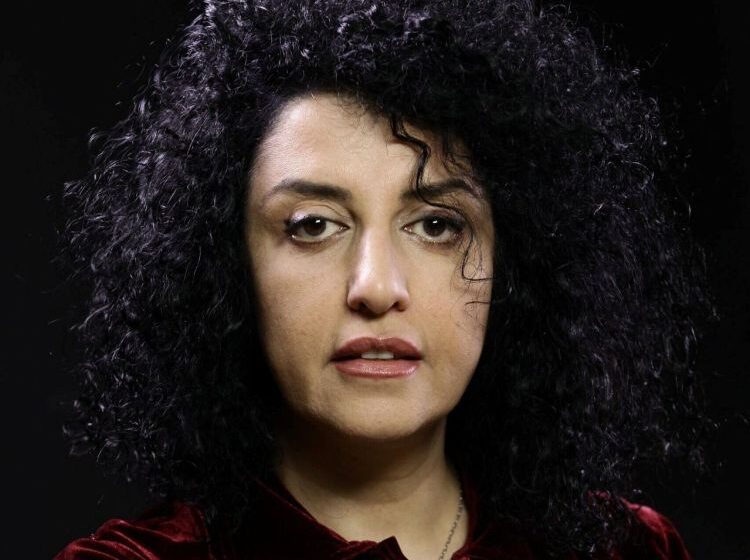
Iranian Activist Narges Mohammadi Awarded the Nobel Peace Prize
Zan. Zendegi. Azadi.
Women. Life. Freedom.

Berit Reiss-Anderson, chair of the Norwegian Nobel Committee, announced the popular slogan often repeated by activists at the annual Nobel Prize announcements on Oct. 2.
Narges Mohammadi, 51, an activist fighting for women’s rights and equality in Iran won the Nobel Peace Prize the following day. But despite being given such an honor, Reis-Anderson was met with silence as Mohammadi was not only not able to receive the award but was unaware of it altogether.
Mohammadi is currently imprisoned and held in Tehran’s Evin Prison alongside inmates with Western ties.
Her son, Ali Rahmani, 16, who lives in Paris, was initially unable to tell his mother about her achievement. The prison has a ‘no-phone’ policy. He claims that his mother is incarcerated for anti-state propaganda.
Despite being afraid for his mother’s safety, Ali said to the New York Times, “The Nobel Prize is a sign for her to continue straight on, to not abandon the fight.”
Her activism came at a cost and has sentenced Mohammadi to jail for a total of 13 times, with five convictions. She was sentenced to 31 years and punished with 154 lashes. Mohammadi is currently serving her sentence.
Mohammadi began her fight for reform as a journalist with the Defenders of Human Rights Center founded by Shirin Ebadi. She, too, won the Nobel Peace Prize while imprisoned in 2003.
But despite being given such an honor, Reis-Anderson was met with silence as Mohammadi was not only not able to receive the award but was unaware of it altogether.
The activist was known for assisting incarcerated activists and their families and was frequently arrested for it—dating back to 2011.
But despite her release on bail in 2013, Mohammadi continued her venture as she campaigned to abolish the death penalty in Iran, which has one of the highest-known executions.
Her activism hit a sort of peak at the tragic death of Mahsa Amini in 2022. Her suspicious death sparked protests and demonstrations across the country. The rallies persisted in other countries like Brussels and Germany.
Mohammadi organized many protests in Iran and held solidarity events with political prisoners since Amini’s death.
In a special coverage by CNN, the activist commented on her award and explained the reasoning behind her movement. She explained that the movement was not just a “feminist protest” with a radical orientation. Rather, it was an attempt to call out the human rights, violations against the continuation of “violence and sexual harassment of women.” It is intended to address the “destructive falsehood and deceit of the government.”
“I want to emphasize that this letter is not written by a free feminist in a developed democratic society, benefiting from civil protest methods and human rights, but rather by an imprisoned woman who, like millions of Iranian women, has been living under the ‘authority’ and ‘oppression’ of a military system with ideological, patriarchal, and tyrannical foundations since the age of 6, deprived of life, youth, ‘femininity,’ and ‘motherhood.’” Mohammadi stated.
She continued by stating that the hijab was not optional but rather imposed by the government. It depended less on the beliefs and convictions of individuals but to “submit” citizens to the nation’s rules. The mandatory hijab was a way of “training submission and surrendering to oppression in society.”
Ultimately, the physical and psychological effects of such an action caused an array of consequences for women. Recent sexual assault and harassment cases against women are still happening and the mere appearance of a religious nation has overlooked real-life implications. This has angered and frustrated women who feel forced to obey ideological and religious claims.
Amnesty International has since called for the release of Narges Mohammadi and has called out Irani authorities to repress critical voices and cause human rights violations.
“Despite the enormous personal cost, the unrelenting attempts to silence her, and the prospect of a life behind bars, Narges Mohammadi defiantly continues to call for change not just for her, but for all women, men, and children in Iran,” Amnesty International’s Secretary General, Agnès Callamard said.



